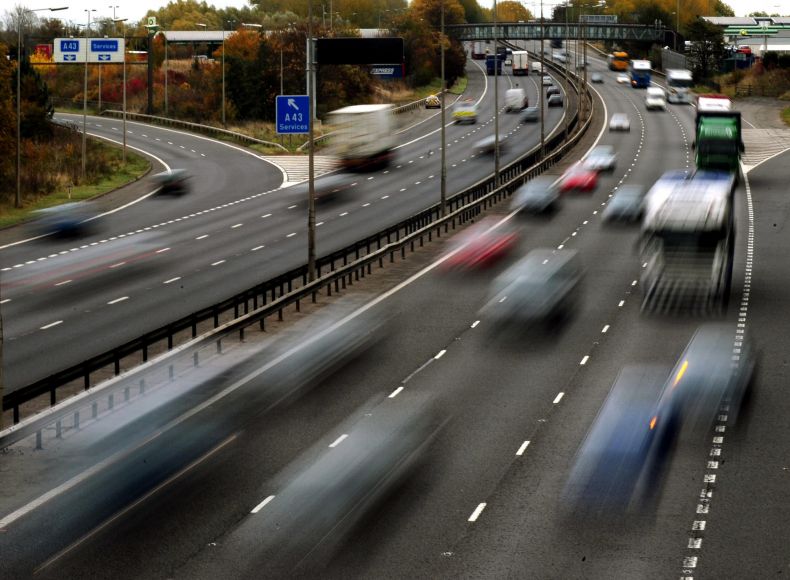How to Get Rid of Fear of Driving Car
Driving stirs up different emotions for everyone, and unfortunately for many would-be motorists – they can be ones of dread.
Whether it's fear of failing a test, apprehension about motorway driving, anxiety over returning to the roads after years out, or a genuine phobia – there's plenty of reasons people are scared of getting behind the wheel.
Sound familiar? You're not alone. Here we set out some of the most common driving fears and where possible, try to allay them with practical advice.
Guide contents
- What is a fear of driving?
- What can cause of a fear of driving?
- What are the symptoms of driving anxiety?
- What can I do to cure driving anxiety?
- How can I conquer my fear of driving on the motorway?
- Driving has changed, how can I keep up?
- What if I can't get over my fear of driving?
What is a fear of driving?
While it doesn't have a specific name, the emotions tied to a fear of driving are extremely common and can manifest themselves in both mild and more severe symptoms.
For some, it can be a fear of very specific situations, such as:
- driving at high speeds
- suffering a loss of control
- learning to drive
- driving alone
- driving at night
- being trapped in a traffic jam
- driving in adverse weather conditions
- driving in unfamiliar areas
- driving alongside larger vehicles
But for many others, it's a more generalised anxiety about sitting behind the wheel. Furthermore, many cases of driving phobia develop seemingly out of the blue, with no clear cause and sometimes after years of driving without fear.
- How to pass your driving test – a full guide from novice to pro


What can cause of a fear of driving?
There's no catch-all answer to the question of why some people develop, or have an in-built fear of driving.
For most, a combination of apprehensions and anxieties will be at play. Some of the most common triggers include:
Performance anxiety – it's human nature to feel the burden of responsibility, especially when safety's at play. As well as your own wellbeing, you're taking on the pressures of looking after any passengers in your vehicle too. Many people feel uncomfortable trusting in their own abilities behind the wheel.
Fear of travel – more of a specified phobia ('hodophobia' to be exact), the fear of travel includes movement through all forms of transportation and apprehension over exploring new places or routes.
Bad experience – it stands to reason that anyone who's been involved in, or witnessed, a road accident (or near-miss) in the past could have been strongly affected by their experience. No incident is too minor to have an effect – it could simply be that driving through a bad storm, getting lost, or even having knowledge of an experience involving somebody you know could trigger an aversion to returning to the road.
- Peace of mind with UK breakdown cover
Fear of authority – while we know police, fire services and ambulance teams are out there to help us, some people suffer from a more clinically-pronounced strain of nervousness around authority figures. This can easily cause a reluctance to get behind the wheel for fear of sharing the road with the authorities – or even just unfamiliar traffic situations – for fear of doing something wrong.
Claustrophobia – one of the more common and most-publicised phobias, the general fear of enclosed spaces can easily transfer to the prospect of sitting inside a car, whether as a driver or passenger.
Fear of accidents – none of us like accidents, but people who suffer from 'dystychiphobia' tend to actively avoid all situations which increase the risk of physical danger, such as getting inside a car.
- Driving in the dark - tips on how to stay safe
- Road safety tips
- A guide to overtaking safely on the road
What are the symptoms of driving anxiety?

The symptoms of driving phobias or anxieties manifest themselves differently in different people, but typically can be similar to those associated with other forms of anxiety or panic attacks.
These can include:
- confusion
- dizziness
- heart palpitations
- sweaty palms
- perspiring
- disorientation
- shortness of breath
- dry mouth
Some people won't necessarily experience any such physical symptoms, but will simply avoid the issue of driving altogether, potentially keeping their fear a secret from friends and family.
If you know somebody who you've noticed hasn't been behind the wheel for a long time – or maybe never saw through on their aim to start driving – try and have a quiet word with them to check things are OK.
What can I do to cure driving anxiety?
While not all cases are necessarily 'curable', there are at least some practical steps you can take which, over time, may help to ease the tensions you associate with driving.
If you're learning to drive, it could be as simple as changing your driving instructor if things just aren't clicking. Many people find that learning with the wrong person can prove an obstacle to motivation in getting back behind the wheel.
Some other general tips include:
Avoid caffeine and empty stomachs – cutting back your caffeinated drink intake can have a surprisingly positive effect on anxiety. As a known trigger, if you get anxious the best course of action is to cut it out altogether. Never attempt to head out in your vehicle without having eaten something first, and never drive while sleep deprived.
Stress management – unfortunately, sustained periods of high stress can breed anxiety, so do all you can to keep your levels down. Standard techniques such as taking regular breaks at work, finding time for exercise, yoga and meditation can all help.
Virtual reality (VR) therapies – research has found VR therapy to be an effective aid in treating driving phobias. The computer technology acts almost like a video game, allows therapists to activate scenarios which expose drivers to situations that elicit fear, such as tunnels, bridges or overtaking.
- Plot your journey – RAC Route Planner
Therapeutic techniques – consider looking into practices like 'desensitisation', which involves taking small steps to put yourself in situations that trigger anxiety. In this case, an example might be simply sitting in a parked car with the engine running. It might take hours, days, even weeks or months to progress to the next stage, but all the while you're desensitising your triggers.
In-car focus – when you are being the wheel, do everything you can to not let your worries or concerns distract you. Keep your mobile phone safely out of sight for starters, and reduce your speed if you find that helps – the faster you drive, the more information you'll need to process.
Consider lift sharing – sometimes the pressures of having to get in your car every day can have an adverse effect on your willingness to stick with it. Investigate sharing the load with a friend or group travelling to a similar area. You may find your days spent as a passenger really help with perspective.
- Drive safe, pay less with Black Box Car Insurance
How can I conquer my fear of driving on the motorway?

If your fear of driving relates specifically to using motorways, fast dual carriageways or other high-speed scenarios, there is help at hand.
It's extremely normal to feel apprehensive about heading out onto motorways and their 70mph speed limits, especially as there's currently no requirement to navigate them during your driving lessons or test.
But increasingly, young and new drivers are taking advantage of a June 2018 law change which allows learners to take motorway lessons before passing their test.
Providing you're accompanied by an approved instructor it's now possible to get a taste for motorways in England, Scotland and Wales as a learner. You still won't be assessed on your motorway driving skills in a driving test, but many learners find it helps with their overall ability and confidence behind the wheel.
Other courses like Pass Plus remain a popular option for drivers who have already passed their test but want to get some accompanied experience on the UK's major roads before setting off alone.
- Tailored cover with Young & News Drivers Car Insurance
- Comprehensive Learner Driver Car Insurance
Driving has changed, can I keep up?
It's extremely normal for senior drivers – or those who haven't been on the roads for many years – to have fears about staying in, or returning to the driver's seat.
If your confidence needs a boost, even the most previously self-assured driver could benefit from an occasional refresher course. Not only will they keep you up to date with any changes that may have passed you by, they might just reinvigorate that love for driving you once had.
It's also surprisingly easy to fall into bad habits or forget some of the key learnings from first time around, so setting aside a few hours with an approved instructor can be the best way to brush up.
Refresher courses aren't assessed, so there's no need to worry about passing or failing, and are many options around, including that of the Institute of Advanced Motorists.
- Driving over 70: a guide to driving for the elderly
What if I can't get over my fear of driving?
It's important to remember that if your apprehensions and anxieties about driving prove too much – don't force it.
You'll just end up causing unnecessary stress for yourself, and danger for other road users.
If you're genuinely struggling with the idea, there's nothing wrong with calling time on it, looking into other options that will better suit you, and making life less of a complication.

50% off Black Friday Sale
You can get covered in our Breakdown Cover sale from just £5.50 a month.* Join the UK's best breakdown provider as voted by Auto Express drivers 2021.

† One month's cover is classed as 28 days, so a 5 month policy runs for 140 days in total.
*For new, single personal based cover on a fixed 18 month plan. Standard cover from £5.50 a month. Ends 02/12/21, 7am.
How to Get Rid of Fear of Driving Car
Source: https://www.rac.co.uk/drive/advice/driving-advice/scared-of-driving/
0 Response to "How to Get Rid of Fear of Driving Car"
Post a Comment